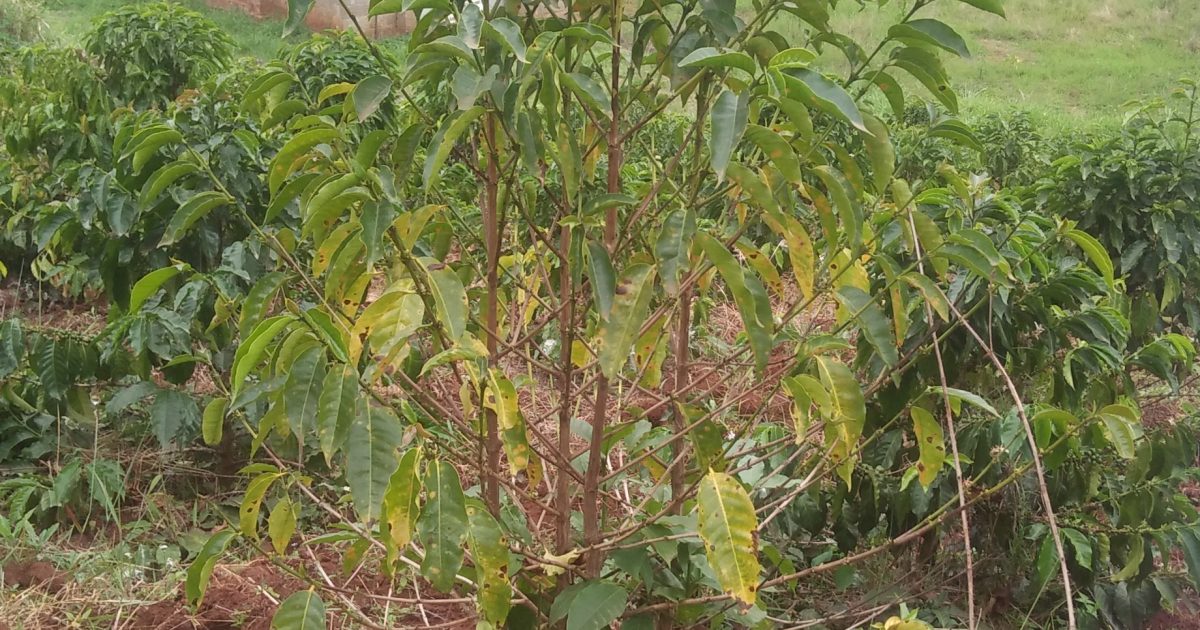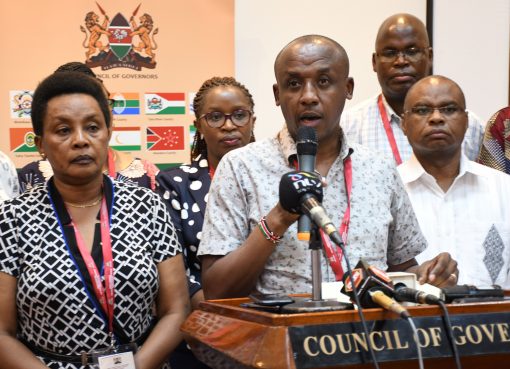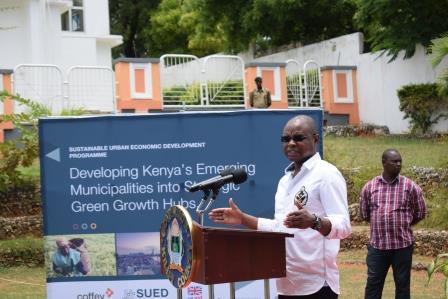
Last week’s visit to Kiambu County by the Agriculture Cabinet Secretary (CS), Peter Munya cannot be taken for granted by Coffee farmers in the region. They are optimistic that the Government will certainly revive the coffee industry.
At its peak, Kenyan Planters Coffee Union (KPCU) sold 120,000 bags of coffee in the 1980s and the government is determined to surpass this figure owing to its determination to rebuild the industry and also provide more jobs as it seeks to address issues of unemployment.
This is seen from the efforts by the Government both National and County governments from the way they are putting in place measures to address the multifaceted problems bedevilling the coffee farmers so that they can reap maximum benefits from growing the crop which is mostly sold on the international market.
The CS while addressing chairmen of 23 coffee societies in Kiambu County last week said the government was concerned with the current state of coffee farmers and was currently mapping out all the coffee societies in the country affiliated to the new KPCU to give them a new lease of life.
He went on to assure the farmers through their chairmen that the government was putting incentives into the coffee farming. “Farmers will now choose how to sell their coffee, who to sell to and that they will dictate the prices that they wish to sell their crop without being hoodwinked by anyone,” he said.
Further, the government has reopened milling plants in Machakos, Sagana and Dandora with a view to offering the farmers’ value for their crop. The farmers believe that coffee was doing well on the international market but the farmer was getting a raw deal and their proceeds were not in tandem with the money they were paid as they were paid a pittance.
Following the latest promise by the CS, some farmers have had a change of heart and are determined to replant coffee which Munya promised will fetch them prices that are equal to their investment.
To regenerate thousands of hectares of land that will help more farmers and their families earn a better living by producing more and better coffee, the government is on the right track which will enable farmers get a fair deal for their sweat. Regenerating land, however, requires money and effort. Farmers need to earn enough to invest in their farms so that they do not dig deep into their pockets to fund the farming activities.
The farmers are now contemplating replanting coffee while those who have it in their farms are now weeding it enthusiastically and envisage to make a kill as promised by the CS.
Owing to the prevailing Covid-19 pandemic that hit the world, including Kenyan farmers, they however are appealing to the government to fund them so that they are able to tend to it to maturity.
Coffee farmers need to pay their electricity and water bills since coffee requires a lot of water to clean the beans as it isolates them according to their grade.
The grinding machine is also electronic and requires electricity to function. They need to purchase manure, fertilizers and drugs to keep at bay the insects which cause disease to the coffee and as they attend to their daily activities, they also need to have money to take care of their families as they also pay wages for people working in their farms.
The farmers who felt neglected by the Government and had opted to venture into other crops or real estate can now smile as they embark on planting and processing coffee from their farms. With zeal and enthusiasm, the workers from at least 2 coffee factories are working round the clock to prepare the berries for delivery to the milling factories that have been revived under the new management of KPCU.
The Kiambaa Coffee factory comprises Ruaka, Kanunga and Gachii factories all located in Kiambaa sub-county which among the sub-counties with farmers engaged in growing coffee. It has about 200 active coffee farmers.
A tour by KNA in two coffee factories in Kiambaa Sub-county of Kiambu County unveiled the enormous tasks undertaken by farmers in the sector had to endure before they could benefit from the proceeds of coffee.
At the Ruaka Coffee factory in Kiambaa sub-county, the machinery is extremely old and owing to the inadequate amount of coffee after farmers uprooted the crop in the yester years when they failed to reap fairly for their crop, it has remained unused for years.
The casual workers at the factory say the machines were last used in the 1990’s. “The grinding machine is broken down and needs to be repaired before the factory can resume business.” The driers which are wooden have been destroyed by termites and the farmers need to replace them with metallic driers which can withstand the vagaries of weather.
The factory which lies on a five acre farm is unable to process the coffee for farmers in the region and they now have to transport it for about 15 km to Gichii, the only functional coffee factory in Kiambaa sub-county.
Farmers in Kanunga are similarly suffering while transporting their coffee berries to Gichii factory located in Wanguthu ward after their grinding machine was stolen in an incident in which coffee beans were stolen in broad daylight.
The two factories which cannot mill the coffee are however compelled to pay their casual workers among them security guards so that as they dry they keep an eye on the coffee at their premises.
It is also expensive to transport the coffee berries to the milling factory as they have to incur extra expenses, a task they contend they could have done at the Ruaka factory like before when the grinding of the berries could be done instantly on delivery thus ensuring that there was no time lost.
An official of the coffee in the region, Ms. Mary Wanjiku Njenga told KNA during the tour that the farmers had been discouraged from planting coffee because of the poor market prices that prevailed in the coffee industry.
The Vice Chairlady of Kiambaa Coffee Factory society management however believes that the recent visit by the CS will be helpful. “It has helped some farmers who had given up on the crop. They can rethink their business and are optimistic that things will gradually change for the better” she says while talking to KNA at Gachii factory where all coffee from three factories is milled.
“Sometimes after they delivered their crop and we took it to the millers, we were even afraid of revealing to them the price that they were going to sell it at. Some farmers would even abuse the officials for not being able to sell the crop at a good price bearing in mind the enormous tasks that they underwent to ensure it was ripe and ended up being sold” she said.
The official told KNA that one plant of Ruiru 11 can give a farmer 30kg when it was taken care of well by giving it manure and fertilizer and also administered proper drugs when the coffee was attacked by disease. The most notorious disease that is affecting farmers in this area is the Coffee Berry Disease (CBD) which this reporter noted had started attacking some plants and needed to be treated. Other diseases are Coffee Leaf Rust, Early and late blight and other fungal diseases in crops.
The Manager of the Kiambaa coffee growers society, Ms. Mary Wahinya talking to KNA at Gichii factory Friday also noted that it was prudent for the milling to be done in one factory since the stock had greatly reduced from 1000 kg to 200 kg per week and that it would be expensive to mill in separately. Gichii is located on a 3 acre land and is blessed to host river Gichii which supplies water to the factory. Ruaka similarly used to be supplied with water from river Ruaka until when the grinding machine broke down.
On August 2, 2019, the Kenyan government put the troubled Kenya Planters Coffee Union (KPCU) under administration. Peter Munya, Cabinet Secretary for Trade and Industrialization said the government had liquated the union because of gross mismanagement.
In his address during the visit by the CS, Governor James Nyoro pleaded with the CS to intervene through his office to have Sh.440 million owed by coffee farmers in the country written off by the government so they start on a clean sheet.
In Kiambu County, coffee is grown in 5 sub-counties of Kiambu, Kiambaa, Githunguri, Ruiru, Gatundu North and South.
By Lydia Shiloya




